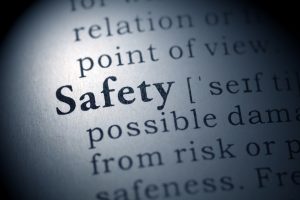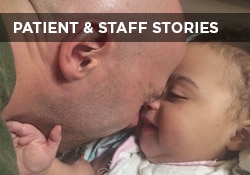This website uses cookies so that we can provide you with the best user experience possible. Cookie information is stored in your browser and performs functions such as recognising you when you return to our website and helping our team to understand which sections of the website you find most interesting and useful.

Susan E. Mazer, Ph.D. Blog
Thoughts and ideas on healthcare
Hi, and welcome to my blog! I'm Susan E. Mazer -- a knowledge expert and thought leader on how the environment of care impacts the patient experience. Topics I write about include safety, satisfaction, hospital noise, nursing, care at the bedside, and much more.
Making Noise about Patient Safety
May 29, 2015
 I have been writing about hospital noise for many years. And, I am convinced that much of the conversation and rationale behind reducing noise is wrong.
I have been writing about hospital noise for many years. And, I am convinced that much of the conversation and rationale behind reducing noise is wrong.
I say that because when we talk about noise as a sound, we get into a question of “how loud.” However, when we look at the outcomes of what we call hospital noise, we see sleep deprivation, patient falls, delirium, confusion, miscommunication, distrust, and patient dis-satisfaction, and more recently, poor HCAHPS scores.
With that in mind, here are my 10 top reasons for making noise a quality and safety issue:
10. Noise is not a decibel level; it is an annoyance and distraction.
9. Noise is like clutter: any sound heard by the wrong person, at the wrong time and in the wrong place.
8. Noise is the first sign of disregard felt by patients, and indicates lack of consideration.
7. Noise is sloppy, having no useful purpose, and indicates sloppy care.
6. Noise contributes to confusion and disorientation, indicating increased risk for falls.
5. Noise is the number 1 complaint among patients, indicating high anxiety and stress.
4. A sudden noise can cause the startle reflex, risking a possible fall or loss of balance for medicated, or otherwise compromised patients.
3. Noise is the number 1 cause of sleep deprivation, which contributes to depression, imbalance, and delirium.
2. “Necessary noise is that which damages the patient,” so writes Florence Nightingale.
1. “Unnecessary noise is the cruelest absence of care,” so declared by Nightingale long before noise levels rose to their present levels.
The quotes from the writings of Florence Nightingale are often stated, but seldom, if ever, taken literally. However, Nightingale meant what she said: subjecting a patient to sounds irrelevant to their situation and a risk to their capacity to recover is cruel, is insulting, and is not what any of us have a right to expect.
Each of the other reasons listed are lived a patient at a time, a day at a time.
Bottom line: Having already written about patient safety, it is clear that noisy hospital is an unsafe hospital. Until the conversation shifts squarely to that focus we will not only miss the point, but we will continue to lack a compelling reason for reducing noise levels. Here, the operative word is “compelling.” Patients need to see and hear evidence that they are safe, that the hospital takes care of the details, especially hidden, that may put them at risk of injury.
When they hear chaos, when they experience disregard, when they cannot sleep because they are hearing what they should not be hearing, they do not feel safe. So, the question is: What does a “safe place” sound like? What does healing sound like?
P.S. If you like this post, please do me a favor and share on LinkedIn, Twitter, Facebook, etc. Also to get automatic notices when a new post is published, subscribe (upper right). No spam – just great content. Thanks!










